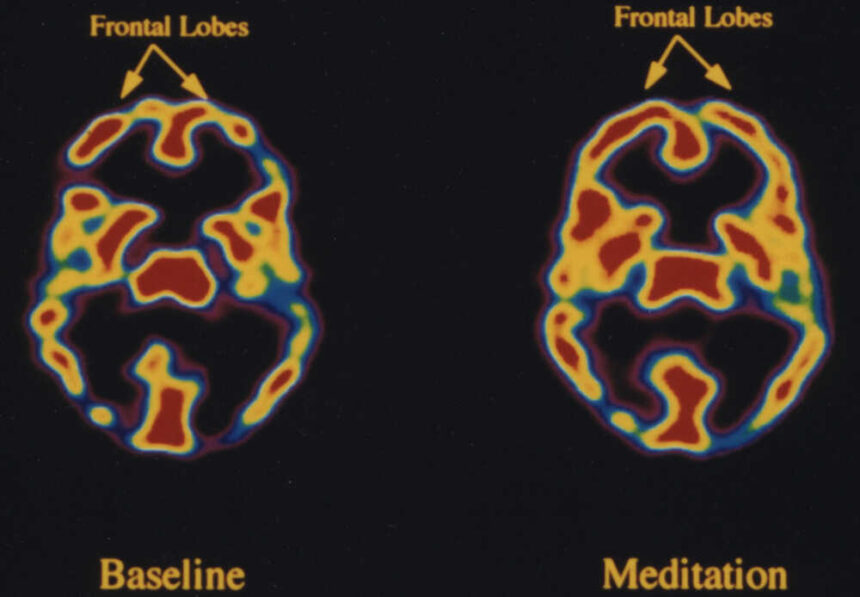In spite of previous research suggesting that meditation may alter brain structure, new research found no evidence of structural brain changes with short-term mindfulness training.
The study was published in Science Advances.
“Here, we present findings from a large, combined dataset of two, three-arm randomized controlled trials with active and waitlist (WL) control groups,” according to the study’s authors.
“Meditation-naïve participants completed structural magnetic resonance imaging scans during two visits: baseline and postintervention period. After baseline, participants were randomly assigned to WL, an 8-week mindfulness-based stress reduction (MBSR) program, or a validated, matched active control.”
The MBSR coursework in the program was taught by certified instructors in areas such as meditation and yoga. A brain imaging exam was administered to measure changes in brain structure by the end of each eight-week trial.
“n the largest and most rigorously controlled study to date, we failed to replicate prior findings and found no evidence that MBSR produced neuroplastic changes compared to either control group, either at the whole-brain level or in regions of interest drawn from prior MBSR studies,” the study concluded.


